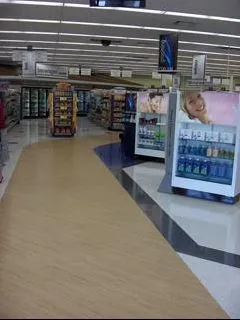LONGUEUIL, Quebec — The Jean Coutu Group had a year of healthy growth and improved profits, president and chief executive officer Francois Coutu said at the company’s annual meeting here earlier this month.
And, he noted, Coutu’s franchisees had also fared better than might have been expected.
When the financial year began in February 2010 expectations were modest. Quebec had a law on its books that obliged it to set the price for generic drugs at a level no higher than that prevailing in other provinces. Ontario was on the eve of announcing what its policy on generics pricing would be, and it was expected that the mandated reductions would be drastic.
With 359 of its 389 stores in Quebec and 20 in Ontario, Jean Coutu was bracing for sharp reductions in dispensing income. The predictions of the scale of the mandated reductions were borne out in the Ontario government’s announcement of its policy in May last year. As expected, Quebec followed with the announcement of its own regime in the fall of 2010.
Despite those developments Coutu was able to report that revenues grew 2% from $2.54 billion (Canadian) in the previous year to $2.59 billion for 2011. Sales in the stores increased from $ 3.63 billion to $3.78 billion.
Net earnings amounted to $182.2 million compared with $112.6 million for the previous fiscal year, when they were affected by the company’s obligation to record a share of the loss of Rite Aid Corp., in which it had a 28.3% equity interest.
Coutu said the company’s increased revenue was also attributable to overall market growth and expansion in the company’s store network.
The increased sales were achieved despite the deflationary impact of the introduction of generic versions of large-volume drugs and the Quebec government’s price reduction for generics.
Jean Coutu’s revenue was bolstered by improved results from Pro Doc, a manufacturer of generic drugs that it acquired in late 2007. This subsidiary had a 54.4% increase in sales in fiscal 2011, bringing in $124.5 million compared with $79.4 million in the preceding year.
While the ending of patent protection on a significant number of top-selling medications reduced revenue for Coutu’s distribution system and the stores, it created opportunity for Pro Doc since the company was able to include those newly classified drugs in its offerings.
The increased sales of Pro Doc’s generics more than compensated for the deflationary impact of the price reductions. Strong operational performance was also a significant contributor to this unit’s success in 2011, noted Coutu.
Pro Doc has a portfolio of about 130 generic molecules and 260 different products, all sold exclusively in Quebec. It is now able to offer 89 of the 100 best-selling generic molecules in the province.
As Coutu reminded his audience, the company addresses its market from a position of great strength. In Quebec, its core territory, its franchisees account for 20.5% of all pharmacies. The stores average sales of $12 million a year.
The average number of prescriptions dispensed per store last year hit 596, the highest in Jean Coutu’s history.
Meanwhile, the company kept up the pace of its expansion program last year, opening 30 franchised stores, of which nine were relocations. In addition 26 outlets were renovated or expanded and 14 Boutiques Passion Beauté were added within the stores last year, bringing the total to 117.
With Jean Coutu having put an emphasis on expanding stores wherever the market suggested there was opportunity to do so, the source of the company’s retail volume is increasingly coming from outlets with a larger footprint.
In 2009 28.9% of the company’s volume was produced by stores of over 10,000 square feet, 50.1% came from outlets of between 7,500 and 10,000 square feet, and 21% came from stores of under 7,500 square feet.
In 2012 it is estimated 41% of the volume will come from the 10,000-square-foot stores, 42.9% from the mid-size outlets, and 15.4% from stores under 7,500 square feet.
Immediately prior to the annual meeting, Coutu and André Belzile, senior vice president of finance and corporate affairs, addressed a conference for financial analysts on the results of the first quarter of fiscal 2012. They noted that 2011’s momentum is continuing, with Coutu describing the period as “the best quarter in the company’s history.”
First quarter revenue was $660.6 million compared with $646.3 million in the same period last year, while net profit climbed from $43.9 million to $49.9 million.
Retail sales in the quarter increased by 2.9%, year over year, to $957.2 million, with pharmacy sales increasing by 2.2% and front-end volume moving ahead by 3.4%. On a comparable-store basis pharmacy grew 0.1% and front end 1.6%.
The meeting with analysts also saw the company announce that it is selling 10% of its holding in Rite Aid. Belzile explained the sale would allow the company to repurchase 2.2 million shares of its class A stock.





